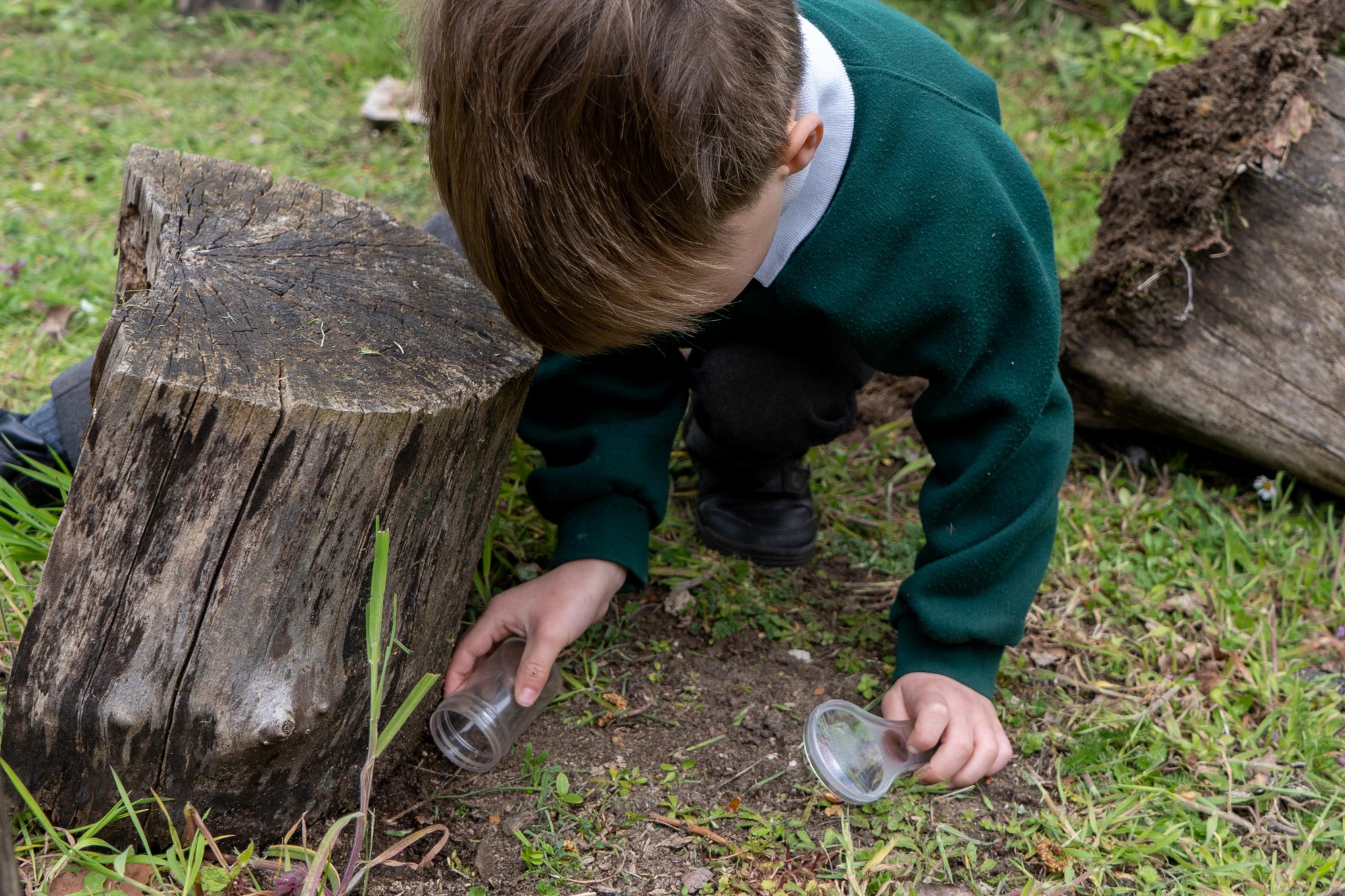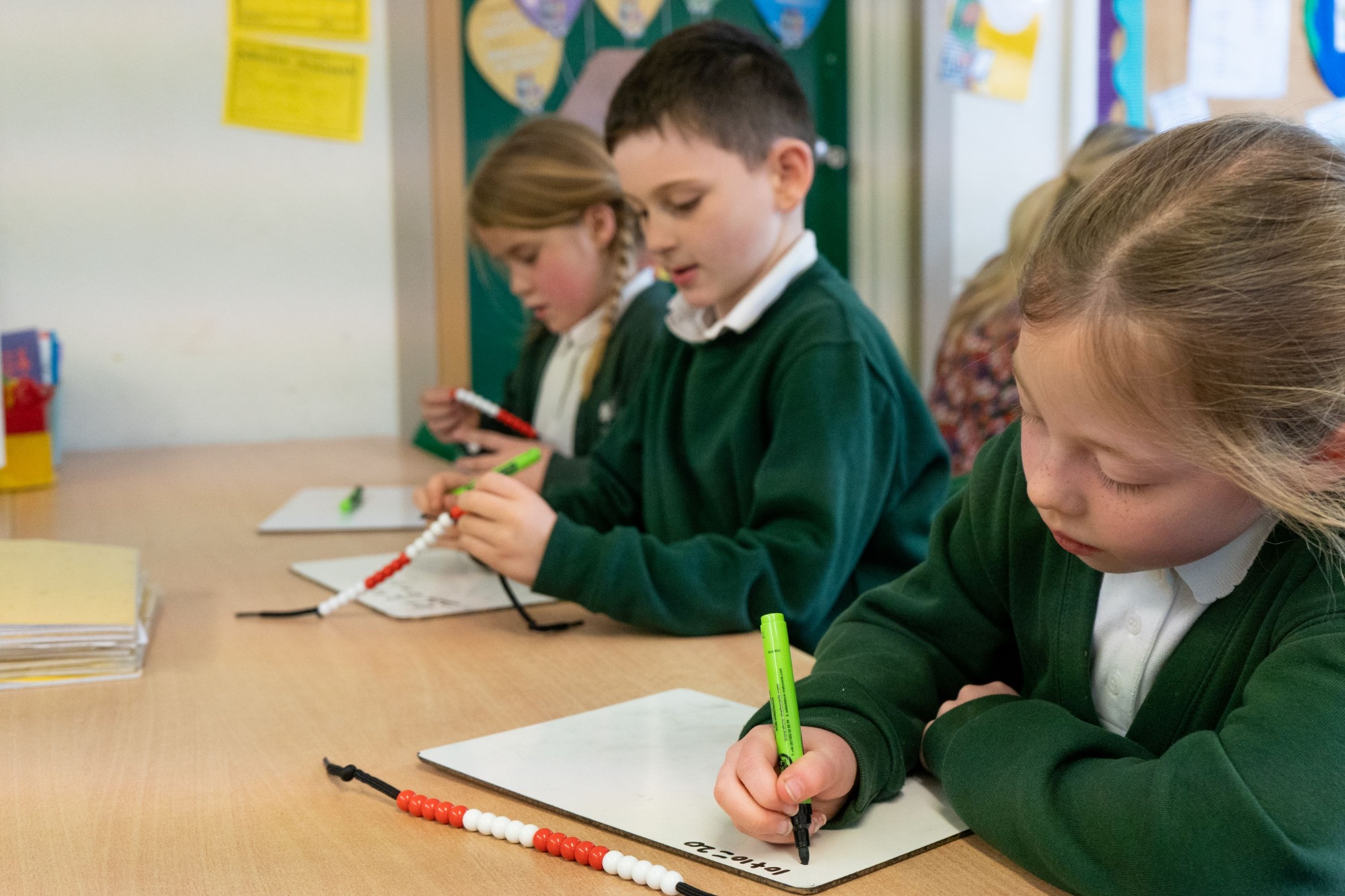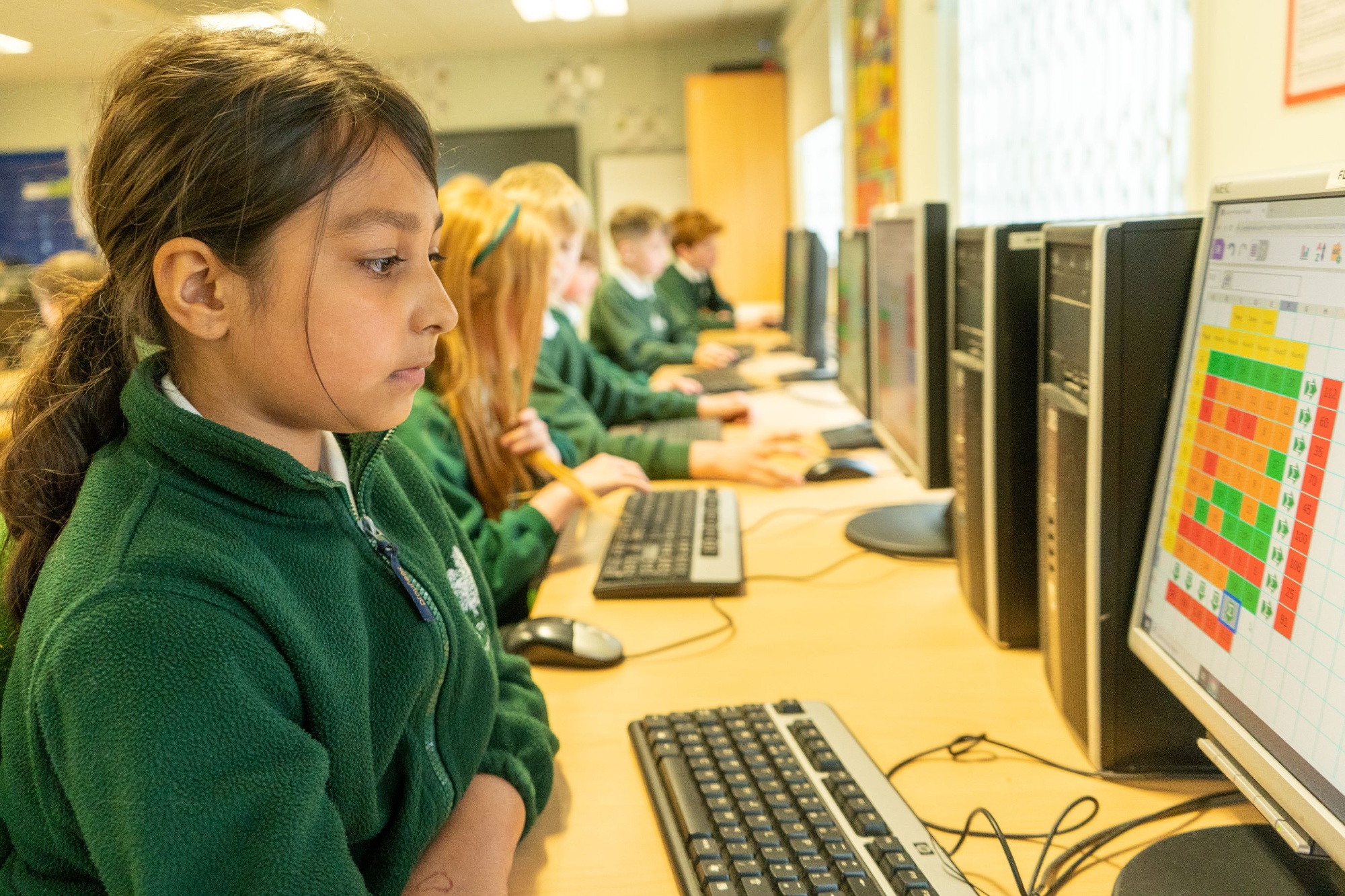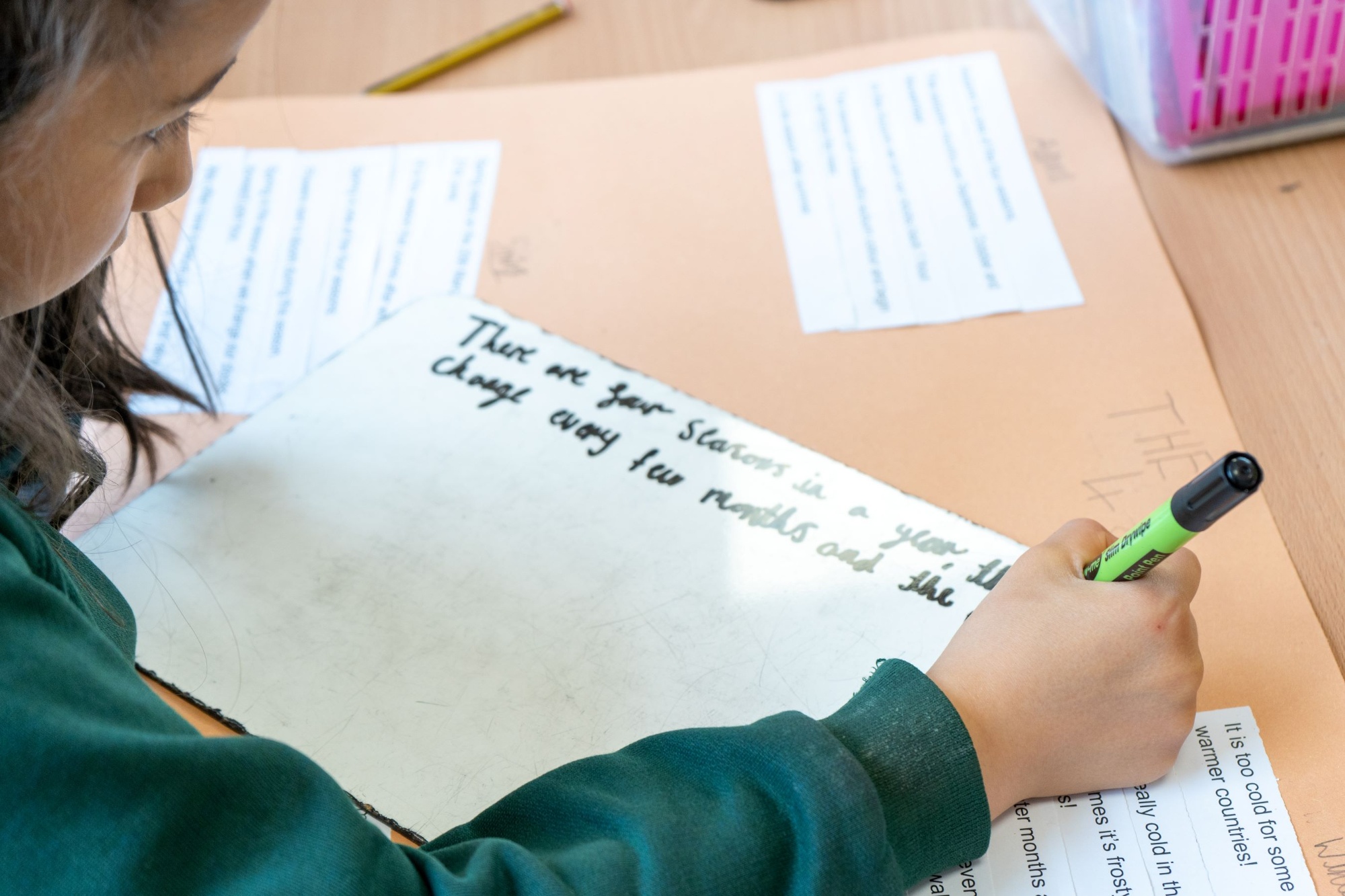English
Intent
We are passionate about delivering an English curriculum that promotes a lifelong love of reading, supports children to become adept at speaking and listening and enables them to become confident and capable writers.
The development of English is fundamental in all areas of the curriculum and therefore is given high priority in this school. All language modes: speaking and listening, reading, writing, including spelling and handwriting are interdependent and of great importance, although the school is unashamedly passionate about the use of the Read Write Inc. scheme and Accelerated Reader, to develop children’s reading.
Reading
We passionately believe that reading is the most important thing children will learn at our school. Everything else depends on it, so we want children to be offered a structured and carefully designed reading programme, which systematically develops reading skills, builds confidence, so each child sees themselves as an effective reader and promotes a love of reading, from an early age.
We want your child to love reading – and to want to read for themselves. This is why we put our efforts into making sure they develop a love of books as well as simply learning to read.
We use an early literacy scheme called Read Write Inc. At the heart of the Read Write Inc (RWI) programme is the desire for children to see reading as an enjoyable experience, with the strong belief that children should never be at the frustration point, where they are struggling to decode a book because it presents words they cannot sound. (For more about RWI see the tab on the left).
“Reading is the gateway for children that makes all other learning possible.” - Barack Obama
“Teach a child to read and keep them reading and we will change everything”- Jeanette Winterson
Speaking and listening, incorporating the use of ‘learning Partners’.
At The Firs, we want our pupils to have an ability to use the spoken word to express their thoughts, articulate their feelings and listen to and respond appropriately in a range of contexts.
"Speak in such a way that others love to listen to you. Listen in such a way that others love to speak to you" - Anonymous.
In every classroom, across the school, children have ‘learning partners’ who they discuss key learning points and questions with. This approach is applied in all curriculum areas.
In any lesson it is important that all children are fully involved in the learning activities if they are to make the best progress. Teachers usually have a question and response session as part of a lesson; whilst this provides the opportunity for individual children to respond to the teacher, the use of ‘learning partners’ as a strategy means that all children get the opportunity to think, discuss and express themselves orally.
Some children may feel more confident when expressing their ideas in a paired situation, rather than to the whole class. The shared responsibility for an opinion or view which comes with this strategy can raise children’s self-confidence and encourage their engagement. It also gives the teacher more opportunities to ask higher order questions, which require more thought, reflection and exploration, and it gives children time to think.
There is significant research to show that children’s learning is restricted by low level questioning and lack of time to respond; the use of ‘learning partners’ can really take children’s learning further, and can be very enjoyable too.
‘Talk is an important means by which we communicate and build social relationships, and it plays a crucial role in learning’ (Primary National Strategy)
Writing
We have created a curriculum that is centred on introducing children to high quality texts, that feed their imagination and develop vocabulary that they can use in their own writing.
We aim to support children to become confident writers, who develop their own individual flair. We believe that it is imperative that we teach our children the literacy skills that are crucial tools to access fundamental curriculum areas and participate fully as a member of society.
“You should write because you love the shape of stories and sentences and the creation of different words on a page. Writing comes from reading, and reading is the finest teacher of how to write”. - Annie Proulx
Our curriculum is designed to achieve the aims set out in The National Curriculum for English, so pupils:
-
read easily, fluently and with good understanding
-
develop the habit of reading widely and often, for both pleasure and information
-
acquire a wide vocabulary, an understanding of grammar and knowledge of linguistic conventions for reading, writing and spoken language
-
appreciate our rich and varied literary heritage
-
write clearly, accurately and coherently, adapting their language and style in and for a range of contexts, purposes and audiences
-
use discussion in order to learn; they should be able to elaborate and explain clearly their understanding and ideas
-
are competent in the arts of speaking and listening, making formal presentations, demonstrating to others and participating in debate.
Implementation
Reading
The school is a Read Write Inc. school and as such, we have made a commitment to aim for excellence in our pursuit of the vision that all our children should be fluent readers, who can use their skills to develop their learning in all areas of the curriculum and who can experience the joy and enrichment that reading brings to our lives.
The Read Write Inc. scheme is used to teach phonics, early reading skills and writing skills, with the aim being that the majority of pupils complete the programme early in Y2.
At the core of the programme is the lively and vigorous teaching of synthetic phonics. Children learn the 44 common sounds in the English language and how to sound-blend words for reading (decoding) at the same time as developing writing skills and spelling (encoding).
As their confidence in decoding develops they are taught to comprehend and compose ideas for their own writing. The children have the pleasure of reading exciting story books perfectly matched to their level – so that they have early success in reading.
A senior leader in the school will always be appointed as RWI Leader, to ensure that the highest standards are maintained in the delivery of the programme.
RWI. has 5 underlying principles – the five Ps:
-
PACE – no time is wasted during teaching sessions! Children are active and involved in a fun and creative way. Children are reminded to give their teacher their ‘magnet eyes’ and ‘listening ears’.
-
PRAISE – teachers praise the children constantly throughout the teaching sessions. Children learn more quickly when they are praised for what they do well, rather than negative interaction about mistakes or behaviour corrections. The children are encouraged to praise each other and as a school we have developed several ‘Praise Phrases’ and ‘Praise actions’.
-
PURPOSE – each activity has a very clear purpose. The teacher will set this purpose at the beginning of the lesson, so that the children know exactly what they will be learning.
-
PARTICIPATION – all children take part in all parts of the lesson. Full participation is gained through partner work and choral response.
-
PASSION – as a staff we are passionate about our teaching and the benefits of the Read, Write Inc. programme. The RWI leader will meet / communicate with our RWI consultant at least termly to review the progress of groups and individuals, to agree additional support and strategies to make progress more rapid.
Through a system of regular individual assessments (every 6-8 weeks), children are allocated to a group which focuses accurately on their learning needs. The pace at which sessions are delivered, coupled with the fact that any child not making the necessary progress is given 1 to 1 support, ensures that children make rapid progress.
The RWI Leader will conduct regular weekly training sessions with staff and will have time each week to support and monitor RWI implementation during RWI lessons. In addition, the school will conduct termly RWI Development Days, to monitor pupil progress and the quality of provision and to provide hands on training and support for ‘RWI teachers’.
Parents are actively encouraged to be involved in the process of reading with their children and books are regularly taken home to be enjoyed together as well as the access to ebooks children can be given on the Oxford Owl / RWI portal.
The initial sections of the reading scheme are organised using the RWI colour bands, so that the books children take home reflect the sounds they are already familiar with. (See RWI tab on the left)
The reading scheme past the RWI Grey level is reflective of the Accelerated Reader (AR) programme and is organised using AR Book Levels into colour bands. (See AR tab on the left)
After leaving the RWI programme, teachers will concentrate on further developing children’s fluency and reading stamina. Accelerated Reader (AR) is used to support this. Children will be assisted to enhance their comprehension skills, learning for example, to ‘read between the lines’ and answer inferential questions, comparing the work of different authors etc. Above all, we will support and encourage children in learning to appreciate the love of reading.
AR is an online tool, which helps teachers manage and monitor children’s independent reading practice. Pupils take regular ‘Star Tests’ that provide a wealth of information about their reading (including Reading Age and a Standardised Score). The tests also determine a child’s Zone of Proximal Development (ZPD).
The ZPD is the range of book levels that are appropriate for the reading stage the child has reached. Children then pick a book at their own ZPD level and read it at his/her own pace. When finished, they take a short quiz on the computer - passing the quiz is an indication that they have understood what has been read.
Star Tests are taken by pupils at regular intervals as follows:
Autumn 1 - September
Autumn 2 - December
Spring - February
Summer - June
AR gives both children and teachers feedback based on the quiz results, which teachers then use to set targets and ongoing reading practice. (See downloadable AR Parent Guide in the AR tab on the left for more details.)
As well as children being motivated by the continuing feedback on the accuracy of their quizzing, there are a number of rewards connected with the programme, including AR certificates awarded for milestones set by the program and our own Firs Megastars Awards, displayed proudly in school!
Reading Practice:
-
In YR and KS1, children take part in reading daily, as part of the RWI session, with opportunities to learn sounds, practise key words they can ‘Fred talk’ (sound) and ‘red words’ (words they need to recognise visually). They experience reading a text three times over three days, before taking the book home (along with an accompanying Book Bag Book and NonFiction Book past yellow level). This ensures that children are reading material that corresponds accurately to the sounds they have learned.
-
Beyond this, staff in each year group will hear children read at least once a half term.
-
As part of the RWI progress tracking process, children who are the furthest behind the RWI expectation for their age are placed into the ‘Urgent Intervention Group’ and are provided with 1 to 1 tuition 10 minutes a day 4 times a week.
-
The remaining pupils, for whom there are some progress concerns (up to approximately 20%) are identified as being in the ‘Intervention Group’. These children will be supported by staff in each year group and will be heard read at least once a fortnight.
-
Educational research indicates that children make better progress in reading if they read daily for 30 minutes or more. In school, we provide at least 15 minutes reading time (much more in KS1, where children are developing their reading every day as part of their RWI lesson) and ask parents to encourage their child to read daily (and for 15 minutes in KS2).
-
AR Star Tests identify children who are in need of ‘Urgent Intervention’ and ‘Intervention’ in the same way as set out above.
-
Children in the ‘Urgent Intervention’ and ‘Intervention’ Groups will either still be on RWI to support their needs and provide focussed daily reading or be supported by the KS2 Reading Leader / staff in their year group, who will hear them read at least once a fortnight (giving highest priority to children in the ‘UI’ Group.)
Speaking and listening
Speaking and listening skills are taught specifically in English sessions and given prominence and time in all other lessons through for example, the use of drama, including ‘hot seating’, group discussions and the extensive use of Learning Partners. It is valued and taught as the foundation skill for communication and for literacy.
Pupils are encouraged and given opportunities to present their ideas with confidence, valuing the views of others. They are supported to speak audibly and confidently and to reconsider their views in the light of the contribution of others.
Writing
Early writing skills
Planned opportunities to develop skills in writing, pre-writing opportunities and making writing part of play from the earliest stages are a fundamental part of the curriculum in Saplings and Pine.
A range of activities to develop fine motor skills are in place- drawing, painting, cutting, making and modelling as well manipulating a variety of textures, materials and toys.
High standards
Children’s progress is tracked carefully to ensure that they are progressing well and that high standards are being maintained. Teachers ensure that children are well aware of how to be successful in lessons and how to assess their work and the work of their peers against the success criteria. They are given regular opportunities to edit and improve their work and the work of peers.
The approach to teaching writing
The curriculum is designed to provide children with an appropriate range of opportunities to write meaningfully in a range of genres. A great emphasis is placed on using preparatory exercises to generate vocabulary, develop ideas, explore themes (using images, art activities, sound effects, drama and dramatic techniques) etc. in order to ensure that children are inspired and ready to write.
As children progress they are expected to create a wide range of increasingly complex texts in a variety of formats, taking account of purpose and audience. They are expected to become more adept at organising and structuring ideas, employing a range of language for effect and writing with technical accuracy.
Developing writing skills
Younger children are encouraged to think about and say the sentence they are about to write, rehearsing it alone or with their ‘learning partner’.
Correct formation of letters is taught and then encouraged in all writing. Regular focused handwriting lessons support correct formation and neat linked script.
Cross-curricular opportunities to develop and apply writing skills are planned for. Core writing lessons develop writing skills, focusing for example on settings for stories, developing characters, good openings or use of adjectives, adverbs and powerful verbs.
Skills to support extended writing are taught e.g. note taking, planning (using a ‘story mountain’), setting out reports etc.
Supports such as word books, dictionaries, word lists and SPAG pyramids will be made available to pupils as appropriate.
All writing activities will have clear learning intentions and success criteria, which are agreed and shared with pupils (Opportunities to focus on success criteria and evaluate progress are used throughout lessons with the use of technology to focus on work to ‘show what excellence looks like’).
Feedback is used to guide children in how to develop their writing, creating opportunities for pupils to develop their learning in response.
Range of writing
Children will be given opportunities to write in a wide variety of genres for various audiences and with a clear purpose. For example:
-
Imaginative adventures, tales and story writing
-
Writing in a style of ancient myths
-
Poetry and plays
-
Recounts of trips and activities
-
Reports –newspaper, scientific explanations etc.
-
Recipes
-
Posters to advertise or persuade
-
Letters e.g. to invite or protest
-
Articles for a newspaper or a website
-
Script writing
-
Producing videos and/or radio recordings
-
Games design -electronic and/or paper based.
Some of these writing activities will be in the context of another curricular area and some will be developing skills as a discrete aspect of literacy development
Spelling
The teaching of spelling is an integrated part of the RWI scheme for children on the programme in KS1. To support their learning, children take home sound sheets reflecting the sound or sounds they have learned and lists of words for RWI books they are reading.
The separate Firs’ spelling programme for children in Y1,-Y4, covers all aspects of the National Curriculum and is designed to ensure that spelling work is useful in improving the children’s spelling in their day to day writing work.
Children will be supported to learn to spell the National Curriculum Common Exception Words and their progress will be assessed regularly and tracked across the school.
Handwriting
Initial letter formation teaching occurs in YR in line with the RWI scheme. Handwriting work in Y1 continues to support this. Formal handwriting lessons are given to pupils as they leave the programme in Y2 and on into KS2. The children are taught a cursive style to ensure all children are joining and to improve presentation.
What Are We Learning? Sheets
To find out what is being taught each term in English, see the 'What Are We Learning Sheet' produced each term. These can be found as downloadable pdfs on the page for each year group, in the list of tabs in the top left-hand corner of the 'Our Learning' page. You can also use the year group page links below:
Impact
When designing our curriculum we considered the attributes, skills and knowledge we wanted for children as they leave The Firs at the end of Year 4 and this is the impact that we wish our curriculum to have. The 20 characteristics we detailed are available in our Scheme of Work.
The impact we wish for our curriculum is that at its conclusion, children leave the Firs as respectful and effective team players. Articulate and confident when speaking, good listeners who are developing independent and positive attitudes to learning.
All children are assessed in reading and writing, by their teachers, on a termly basis. This information is discussed at the termly Target Monitoring meeting and informs future teaching and learning in English.
Children are formally assessed in reading and writing at the end of Reception, against the Early Learning Goals, which are detailed in the Statutory Framework for the EYFS.
The school takes part in the National Phonics Screening Check. Children take the check at the end of Year 1 and then again in Year 2 if they do not pass in Year 1.
Children are also formally teacher assessed in Reading, Writing (and maths) at the end of Key Stage 1 (Year 2). These assessments are made using the Y2 Assessment Framework.
Assessment data for The Firs, including reading and writing is available on the Achievement Page of our website.




